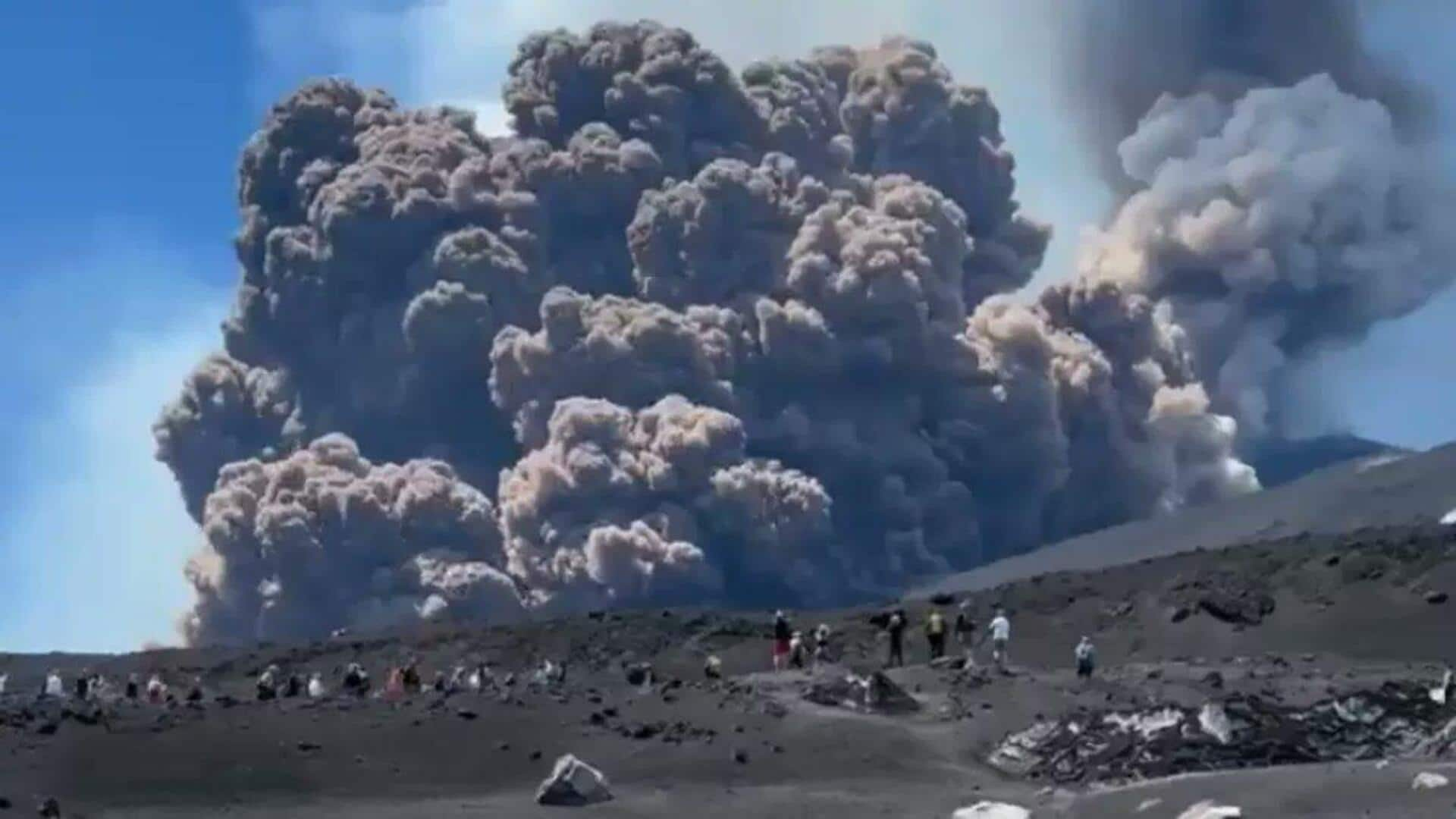
Tourists flee as Mount Etna spews plumes of ash, lava
What's the story
A massive eruption at Mount Etna in Sicily, Italy, "several kilometers high," forced tourists to evacuate the area on Monday. The National Institute of Geophysics and Volcanology (INGV) reported that the eruption released ash and lava from its Southeast Crater. The event was marked by "almost continuous" explosions that intensified into a lava fountain by midday.
Evacuation and safety
Tourists safely evacuated, no immediate threat to towns
Social media footage showed tourists fleeing the volcano as the eruption began. A local tour operator confirmed they had 40 people on the mountain during this time. Fortunately, all tourists were safely evacuated, and there was no immediate threat reported to surrounding towns, although some flights from Catania were redirected to Palermo.
Twitter Post
Watch the video here
Tourists and guides run for their lives when Mount Etna suddenly erupts pic.twitter.com/HKhTiUCuUe
— Nature is Amazing ☘️ (@AMAZlNGNATURE) June 3, 2025
Volcanic activity
Mount Etna's significant eruption since 2014
The INGV described the event as a "pyroclastic eruption," which involves a mixture of hot gases, volcanic ash, and rocks. This is the most intense eruption at Mount Etna since 2014. The observatory noted a "partial collapse" of the northern flank of the volcano's southeast crater, which has produced lava flows during recent eruptions in the past few months.
Aviation impact
Airports remain open, flights redirected due to eruption
Despite the volcanic activity, airports in Catania and Palermo are still operational, as winds have kept ash away from these locations. However, some flights from Catania have been redirected to Palermo. The Sicilian Civil Protection Agency issued a Volcanic Observatory Notice for Aviation (VONA) for aircraft, advising them to avoid the area. Authorities have also closed roads leading up to Mount Etna to ensure public safety and allow emergency responders access.
Etna
Mount Etna is considered Europe's most active volcano
The observatory said that all three lava flows are now cooling down. The AP, citing Renato Schifani, the head of Sicily's regional government, also said that the pyroclastic flows "posed no danger to the population" of the island. Mount Etna is considered Europe's most active volcano, as well as the world's most active stratovolcano. Etna has erupted at least once a year over the previous many years, occasionally coating nearby towns in volcanic dust but causing no severe problems.